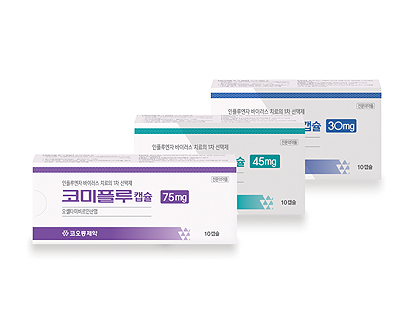Kolon Pharmaceutical’s prescription flu treatment Comiflu (oseltamivir phosphate) was distributed to a daycare via a donation group without a doctor’s prescription, and the regulator belatedly started investigating the case. Comiflu is a generic copy of Tamiflu.
A daycare center in Jecheon, North Chungcheong Province, recently doled out Comiflu to children for free, according to sources from the Korea Pharmaceutical Association (KPA) and the pharmaceutical industry on Wednesday. As a result, parents and guardians filed complaints with the daycare and the public health center in Jecheon, and the drug distribution was suspended.

According to KPA, Comiflu was delivered from Korea Love Sharing Community, a donation group, to Jecheon’s welfare center, the daycare directors’ council, and the nursery school.
Comiflu at the daycare came from those donated by Kolon Pharmaceutical to Korea Love Sharing Community in April.
The most serious issue is that Comiflu, a prescription drug, was distributed to children without a doctor’s prescription.
Tamiflu, the original drug, reported neuropsychiatric adverse reactions such as convulsions and delirium in children and adolescents.
In 2018, the Ministry of Food and Drug Safety (MFDS) distributed a safety letter urging children and adolescents not to be alone for two days after taking the drug after a teenager who took medicine died from a fall due to suspected side effects.
Kim Woo-joo, a professor of infectious disease at Korea University Guro Hospital, said people must have been careless in delivering the flu treatment.
“Although the causal relationship is not clear, the treatment could cause delirium or neurological disorder in teenagers,” he said. “This became a problem in Japan once, and the Korean regulator took measures to warn people about the use.”
Noticing the problem, the MFDS began to investigate whether Kolon Pharmaceutical’s donation of medicines was legal. The ministry also signaled that it could take legal action against Korea Love Sharing Community.
KPA, the pharmacists’ group, also criticized Kolon’s act.
Although the company claims that it intended to donate the flu treatment to children in other countries, the company must have known that the drug could be used in Korea, given the expiration of the drug was less than four months, KPA said.
Overseas drug donations are possible only when the expiration is over four months.
KPA said it would find facts regarding Kolon, the donation group, and the daycare center and sue them if it found illegal acts.
“We need to improve the drug donation and administration system, so doctors and pharmacists manage donated medicines,” KPA said.
Also, pharmaceutical companies should stop donating medicines nearing expiration.
Kolon Pharmaceutical said it found it unfair to accuse the company.
“The company is also investigating the case. We delivered Comiflu to Korea Love Sharing Community under the procedure of drug donation, and this was legally possible,” an official at Kolon Pharmaceutical said.
The official added pointed out that the drug was distributed to the unappropriated place from the donation group, not the company.
“We haven’t received a reply from Korea Love Sharing Community about why Comiflu went to the daycare and where it gave the drug, how much it gave, and how much it retrieved,” he said.
As many Korean drugmakers make donations to Korea Love Sharing Community, he added that Kolon would hold the group accountable.

